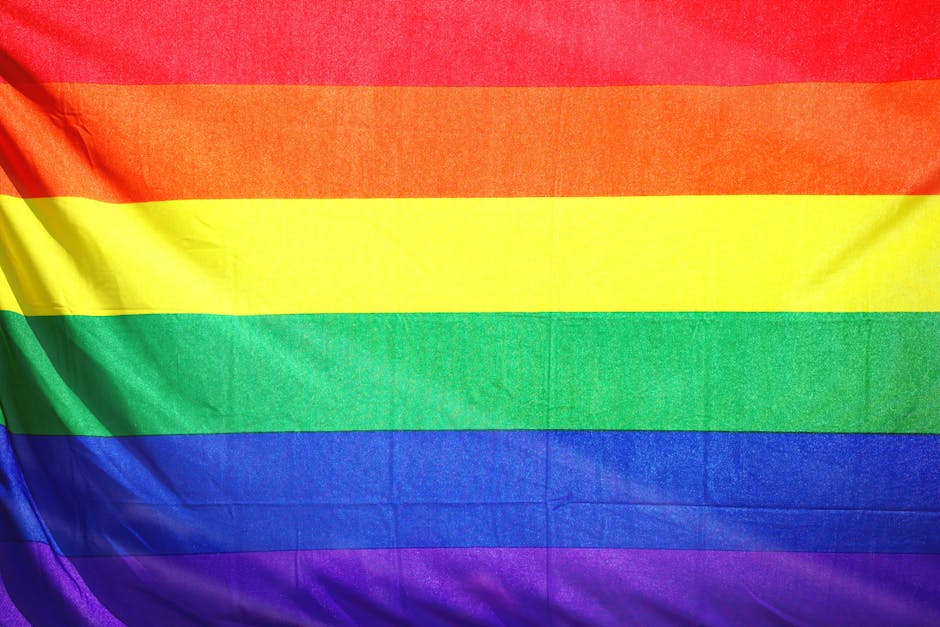Inclusive Societal Movements: A Comprehensive Exploration
Welcome to a deep dive into the world of inclusive societal movements. In an era where diversity, equity, and inclusion have become central themes in social discourse, examining how movements aimed at inclusivity shape our societies is crucial. From civil rights movements to LGBTQ+ activism to disability rights advocacy, inclusive societal movements have played a pivotal role in fostering social change and challenging systemic inequalities.
Have you ever wondered how these movements come to be? What drives individuals to band together for a common cause, fighting for the rights and recognition of marginalized groups? Join us on a journey through the intricacies of inclusive societal movements, exploring their history, impact, challenges, and potential for a more equitable future.
The Roots of Inclusive Societal Movements

Understanding the origins of inclusive societal movements requires a look back at history. From the civil rights movement in the United States to the suffragette movement in the UK, marginalized groups have long fought for equal rights and representation. These movements laid the groundwork for contemporary activism, highlighting the power of collective action in driving social change.
One of the earliest examples of an inclusive societal movement is the abolitionist movement, which campaigned for the end of slavery in the 19th century. Led by prominent figures such as Frederick Douglass and Harriet Tubman, the movement brought together individuals from diverse backgrounds to challenge the institution of slavery and advocate for the rights of enslaved people.
Fast forward to the 20th century, and we see the emergence of the civil rights movement, a transformative period in American history marked by nonviolent protests, sit-ins, and marches. Led by civil rights icons like Martin Luther King Jr. and Rosa Parks, the movement aimed to end racial segregation and discrimination, paving the way for landmark legislation such as the Civil Rights Act of 1964.
The Evolution of Inclusive Societal Movements

As society has evolved, so too have inclusive societal movements. In recent decades, we have witnessed a surge in activism focused on a wide range of issues, from LGBTQ+ rights to climate justice. These movements have harnessed the power of social media and digital technology to amplify their message and mobilize supporters on a global scale.
One notable example is the #BlackLivesMatter movement, which emerged in response to police brutality and systemic racism against Black communities. What began as a hashtag on social media has since grown into a powerful grassroots movement advocating for racial justice and police reform. The movement has sparked widespread protests, conversations, and policy changes, demonstrating the enduring impact of inclusive activism.
Similarly, the #MeToo movement has brought issues of sexual harassment and assault to the forefront, encouraging survivors to speak out and hold perpetrators accountable. The movement has prompted a cultural reckoning with gender-based violence and discrimination, leading to increased awareness and support for survivors.
The Impact of Inclusive Societal Movements

The influence of inclusive societal movements extends far beyond policy changes and legal victories. These movements have the power to shift cultural norms, challenge stereotypes, and create spaces for marginalized voices to be heard. By centering the experiences and perspectives of those most affected by discrimination, inclusive movements can drive lasting social change and foster a more equitable society.
One significant impact of inclusive societal movements is the creation of safe spaces for marginalized communities to come together, share their stories, and support one another. These spaces can provide a sense of belonging and solidarity, empowering individuals to advocate for their rights and challenge oppressive structures.
Moreover, inclusive movements can spark important conversations about privilege, power, and allyship, encouraging individuals to reflect on their own biases and take meaningful action to support marginalized groups. By promoting empathy, understanding, and solidarity, inclusive movements can bridge divides and build coalitions for social justice.
Challenges and Controversies in Inclusive Societal Movements

While inclusive societal movements have made significant strides towards equality and justice, they are not without their challenges and controversies. One common critique of inclusive movements is the issue of tokenism, where marginalized individuals are included in a superficial way to appear diverse without addressing systemic issues of inequality.
Additionally, internal divisions and disagreements can arise within inclusive movements, leading to debates over tactics, priorities, and leadership. Navigating these tensions requires a commitment to open dialogue, accountability, and collective decision-making to ensure the movement remains inclusive and responsive to the needs of all its members.
Furthermore, inclusive movements may face backlash from those who feel threatened by calls for change and equality. This resistance can manifest in the form of misinformation, harassment, and violence, posing risks to the safety and well-being of activists and advocates. Overcoming these challenges requires resilience, solidarity, and strategic organizing to push forward and effect meaningful change.
The Future of Inclusive Societal Movements
As we look to the future, the role of inclusive societal movements in shaping our societies will only continue to grow in importance. With issues such as climate change, economic inequality, and systemic racism becoming increasingly urgent, the need for collective action and solidarity has never been greater.
One promising development is the intersectionality of inclusive movements, where activists recognize the interconnected nature of oppression and work to address multiple forms of discrimination simultaneously. By centering the experiences of marginalized individuals at the intersections of race, gender, sexuality, and ability, inclusive movements can create more holistic solutions and build stronger alliances for social change.
Advances in technology and communication present new opportunities for inclusive movements to reach broader audiences, mobilize support, and hold institutions accountable. From online petitions to virtual protests, digital tools can amplify the voices of marginalized communities and facilitate global solidarity in the fight for justice and equality.
Expert Opinions on Inclusive Societal Movements
To gain further insights into the impact and potential of inclusive societal movements, we reached out to experts in the field for their perspectives. Dr. Maya Williams, a professor of social justice studies, emphasizes the importance of intersectional activism in addressing systemic inequalities:
“Inclusive movements that recognize and address the intersecting forms of discrimination faced by marginalized communities are key to dismantling oppressive structures and building a more just society. By centering the voices and experiences of those most affected, we can create more inclusive, equitable spaces for all.” – Dr. Maya Williams
Dr. Jamal Patel, a researcher specializing in digital activism, highlights the role of technology in amplifying marginalized voices and fostering global solidarity:
“Digital tools have revolutionized the way inclusive movements mobilize support, share information, and challenge power structures. Social media platforms, online petitions, and virtual events have leveled the playing field, allowing activists to reach audiences on a global scale and effect change in real-time.” – Dr. Jamal Patel
FAQs About Inclusive Societal Movements
Q: What are some strategies for individuals to support inclusive societal movements?
A: Individuals can support inclusive movements by educating themselves on social justice issues, amplifying marginalized voices, donating to grassroots organizations, and actively advocating for policy changes that promote equity and inclusion.
Q: How can organizations promote inclusivity within their workplaces and communities?
A: Organizations can promote inclusivity by implementing diversity and inclusion initiatives, creating safe spaces for dialogue and learning, fostering a culture of belonging and respect, and centering the voices of marginalized employees and community members.
Parting Words
To wrap things up, inclusive societal movements play a vital role in reshaping our societies, challenging power structures, and advocating for justice and equality. As we navigate the complexities of systemic oppression and discrimination, inclusive movements offer a path forward towards a more inclusive, equitable future. By standing in solidarity with marginalized communities, amplifying their voices, and taking meaningful action, we can all contribute to a more just and inclusive society for all.
Remember, the work of inclusion is ongoing, requiring continuous reflection, dialogue, and action. Together, we can build a more just and equitable world for future generations to come.




